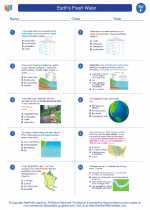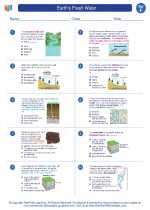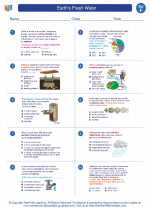Microbiology
Microbiology is the study of microscopic organisms, including bacteria, viruses, fungi, and protozoa. These microorganisms play crucial roles in various ecological, industrial, and medical processes. Understanding microbiology is important for fields such as medicine, agriculture, environmental science, and biotechnology.
Key Concepts in Microbiology
- Microbial Diversity: Microorganisms exhibit a wide range of diversity in terms of size, shape, structure, and metabolic processes. Understanding this diversity is essential for studying their characteristics and behaviors.
- Microbial Structure and Function: Microorganisms have unique cell structures and biochemical processes that differ from those of eukaryotic cells. Studying these structures and functions is crucial for understanding their behavior and interactions.
- Microbial Growth and Reproduction: Microorganisms reproduce through various mechanisms such as binary fission, budding, and spore formation. Understanding their growth and reproduction is important for controlling their populations and studying their life cycles.
- Microbial Genetics: Microorganisms exhibit diverse genetic mechanisms, including horizontal gene transfer and mutation. Studying microbial genetics helps in understanding their evolution, adaptation, and genetic engineering.
- Microbial Interactions: Microorganisms interact with each other and with other organisms in complex ways. Studying these interactions is essential for understanding ecosystems, disease processes, and symbiotic relationships.
- Microbial Ecology: Microorganisms play vital roles in ecological processes such as nutrient cycling, decomposition, and symbiosis. Understanding microbial ecology is important for maintaining ecosystem balance and understanding environmental changes.
- Microorganisms and Human Health: Many microorganisms are pathogens that can cause diseases in humans. Studying their characteristics, transmission, and control measures is essential for public health and medical interventions.
Study Guide for Microbiology
When studying microbiology, it's important to focus on the following key areas:
- Understanding the diversity of microorganisms and their classification based on taxonomy and phylogeny.
- Learning about the structure and function of microbial cells, including their organelles, cell walls, and genetic material.
- Exploring the mechanisms of microbial growth, reproduction, and population dynamics, including factors influencing growth rates and population size.
- Studying microbial genetics, including mutation, gene transfer, and the role of plasmids in bacterial resistance.
- Investigating microbial interactions and their impact on ecosystems, including competition, predation, and mutualism among microorganisms.
- Examining the role of microorganisms in environmental processes, such as bioremediation, nitrogen fixation, and carbon cycling.
- Understanding the principles of microbial pathogenesis, including the mechanisms of infection, host immune responses, and disease prevention strategies.
- Exploring the applications of microbiology in biotechnology, food production, pharmaceuticals, and environmental conservation.
By focusing on these key areas, students can gain a comprehensive understanding of microbiology and its relevance to various scientific disciplines and practical applications.
.◂Science Worksheets and Study Guides Sixth Grade. Earth's Fresh Water
Study Guide Earth's Fresh Water
Earth's Fresh Water  Worksheet/Answer key
Worksheet/Answer key Earth's Fresh Water
Earth's Fresh Water  Worksheet/Answer key
Worksheet/Answer key Earth's Fresh Water
Earth's Fresh Water  Worksheet/Answer key
Worksheet/Answer key Earth's Fresh Water
Earth's Fresh Water  Vocabulary/Answer key
Vocabulary/Answer key Earth's Fresh Water
Earth's Fresh Water  Vocabulary/Answer key
Vocabulary/Answer key Earth's Fresh Water
Earth's Fresh Water 

 Worksheet/Answer key
Worksheet/Answer key
 Worksheet/Answer key
Worksheet/Answer key
 Worksheet/Answer key
Worksheet/Answer key
 Vocabulary/Answer key
Vocabulary/Answer key
 Vocabulary/Answer key
Vocabulary/Answer key

The resources above cover the following skills:
EARTH AND SPACE SCIENCE
Earth and Human Activity
Implement scientific principles to design processes for monitoring and minimizing human impact on the environment (e.g., water usage, including withdrawal of water from streams and aquifers or construction of dams and levees; land usage, including urban development, agriculture, or removal of wetlands; pollution of air, water, and land).